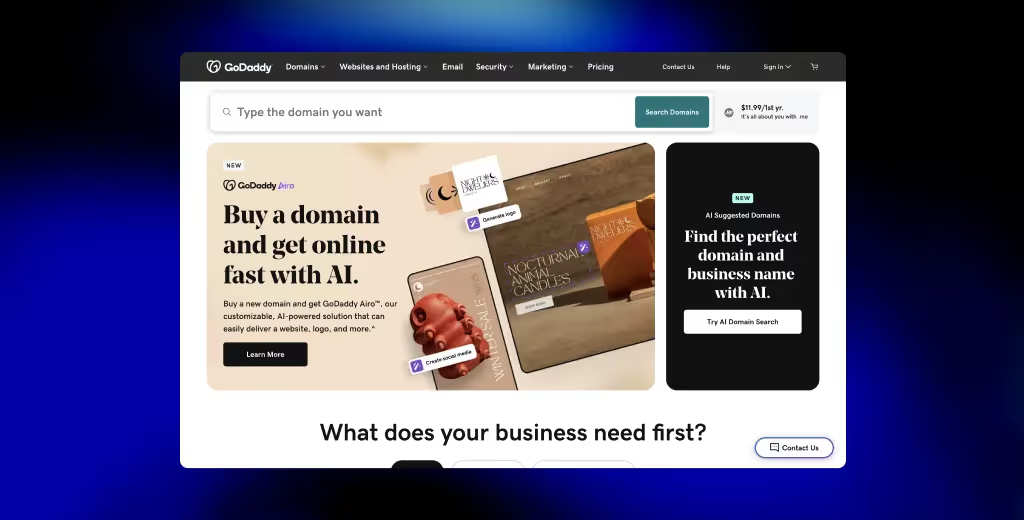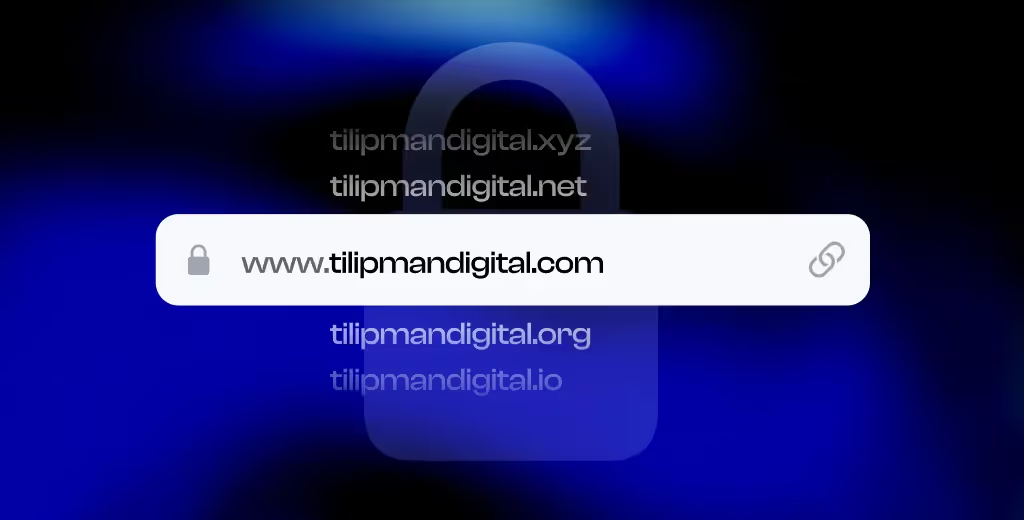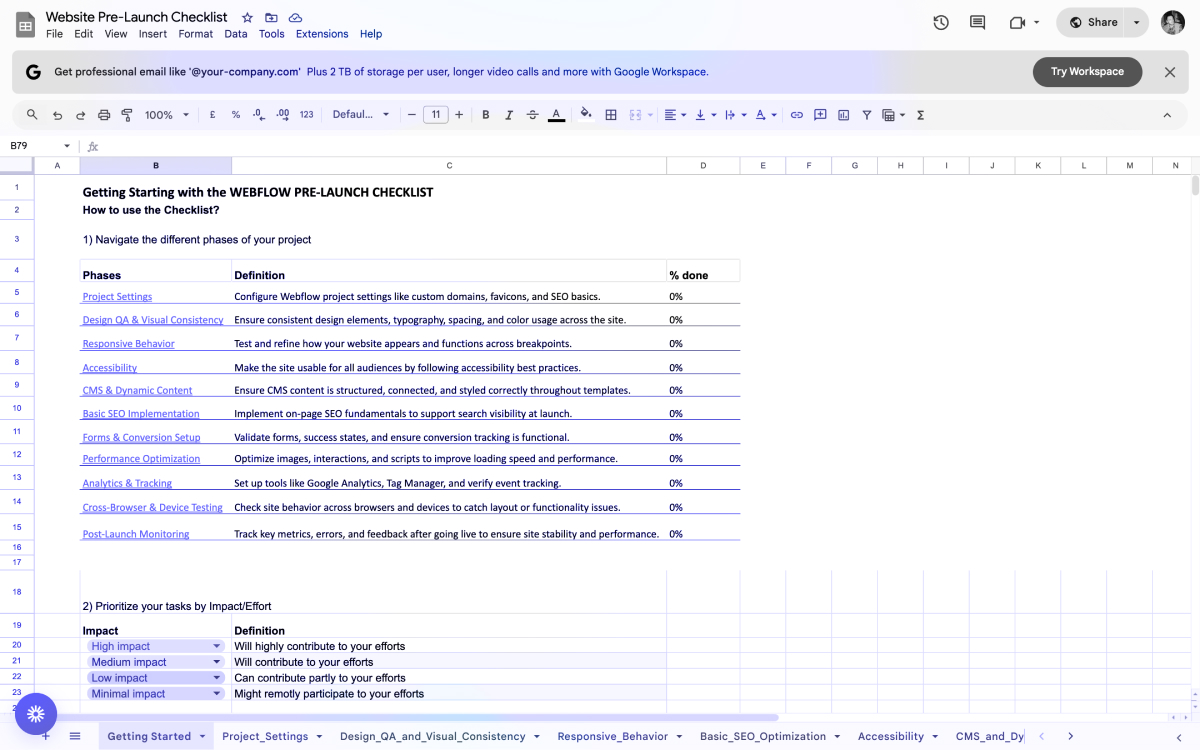Ever heard the saying, "You only get one chance to make a first impression"?
Well, in the online world, your domain name is pretty much that first impression. It's like the sign above your shop, the name on your business card - it tells people who you are and what you're about before they even click on your site.
Picking the right one can make a big difference in how people see your business, and we're going to break down how to do just that.
Sit tight and get ready to find out all you need to know about the process of choosing the right domain for your business website.
What is a Business Domain?
Alright, let's clear something up right off the bat: there's no magical category called "business domains." It's not like there's a special section on the internet where they keep all the super serious, official-sounding domain names.
Think of it this way: any domain name can be a "business domain" if you're using it for your business. Sure, some might sound a bit more professional than others, but there's no rule book saying you can't use a quirky or creative name if it fits your brand.
The good news is that this gives you a lot of freedom to choose a domain that really reflects what your business is all about.
But before we dive into how to pick the perfect one, let's do a quick recap on what a domain name actually is.
Domain Names 101
A domain name is the address for your website. It's what people type in to find you online, like "google.com" or "webflow.com."
Every domain name has two main parts:
- The Top-Level Domain (TLD): This is the bit at the end, like ".com", ".org", or ".net". It's kind of like the general neighborhood your website lives in.
- The Second-Level Domain (SLD): This is the unique part that comes before the dot, like "google" or "tilipmandigital". It's how people know it's your specific house in that neighborhood.
- The Subdomain: A subdomain is like a prefix to the main domain name. The most common one is www, which usually leads to the home page and the most important pages.some text
- Most common (www) - The most common subdomain that usually leads to a website's homepage and most important pages. It's so common that it's most often included automatically when you buy a domain name.
- Optional - For instance, blog.hubspot.com. This subdomain points to the website's blog section.

Why Your Domain Name Matters
Think of your domain name as a key part of your branding. It's like your logo or your slogan – it helps people recognize and remember you.
A good domain name can make your business seem more professional, trustworthy, and easy to find.
Should Your Domain Name Match Your Business Name?
This is a common question, and the answer is usually "yes."
It makes sense to keep things simple and consistent, right? Plus, if you've put a lot of thought into your business name, why not use it for your domain name too?
Of course, there are always exceptions to the rule. Maybe your business name is really long or hard to spell. Or maybe you want to use a different domain name to target a specific audience or product.
But in most cases, sticking with your business name and a ".com" TLD is a good choice.

How to Choose the Best Business Domain Name?
Alright, now that we've introduced you to the basics, let's talk about how to pick a domain name that's perfect for your business.
Here's your walkthrough:
Picking the Perfect Domain Name: Top Tips
- Go for a ".com" (or something similar): While there are tons of new domain extensions out there (like ".inc" or ".xyz"), sticking with a classic ".com" is usually your best bet. It's what people are most familiar with, and it just screams "legit business." Contrary to country-specific domains, this type doesn’t require you for an identification.
- Keep it Catchy and Concise: Think of your domain name like a catchy tune – you want something that's easy to remember and rolls off the tongue. Avoid long, complicated names or weird spellings that people will struggle to recall (or even type!).
- Ditch the Hyphens and Numbers: Hyphens and numbers are like the awkward guests at a party - nobody really wants them there. They make your domain name harder to remember and more prone to typos. Stick to letters and keep it simple.
- Make it Relevant: Your domain name should give people a clue about what your business actually does. If you sell handmade pottery, a domain name like "potteryby[yourname].com" is much more helpful than "extraordinarypotterywondersfewclicksaway".
- Don't Steal Someone Else's Name: This should go without saying, but don't use a domain name that includes someone else's trademark. It's not only bad for business, but it could also land you in legal hot water.
Ready to Make Your Domain Name Official?
So, you've brainstormed the perfect domain name. Now it's time to actually register it and make it yours!
Here's the deal:
- Find a Domain Registrar: Think of a domain registrar like a real estate agent for website names. They're the ones who handle all the paperwork and make sure your chosen domain is officially registered to you. Some popular options include GoDaddy and Namecheap, but there are plenty of others out there.
- Do a Quick Background Check: Before you commit to a registrar, make sure they're reputable and have decent customer support. You don't want to get stuck with a shady company if something goes wrong.
- Pick Your Plan: Domain names usually aren't too expensive, but the price can vary depending on factors like the TLD and any extra features you want (like privacy protection). Shop around and compare prices to find the best deal.

How Much Will This Cost?
The cost of a domain name can range from pocket change to a small fortune. It all depends on how desirable your chosen name is.
Super generic names might only set you back a few bucks per year, while a premium domain name (like "cars.com") could cost millions.
If you're aiming for a memorable domain name that perfectly matches your business, be prepared to shell out a bit more cash. But hey, a great domain name is an investment in your brand, right?
Protecting Your Domain
Okay, you have gone through the entire process and you’ve got your desired domain. Now, let’s walk you through the process of making it as secure as possible.
- Choose a Trustworthy Registrar: Just like you wouldn't leave your valuables with a stranger, you don't want to register your domain with a shady registrar. Do your research and pick a company with a good reputation and solid security measures in place.
- Keep Your Personal Info Private: When you register a domain, you have to provide some personal information (like your name and address). But you don't necessarily want that info publicly available for anyone to see. Most registrars offer private registration, which basically hides your details from prying eyes.
- Grab Those Other Extensions: Let's say you registered "awesomebusiness.com". It's a good idea to also register other common extensions like "awesomebusiness.net" and "awesomebusiness.org". This prevents someone else from snatching them up and potentially redirecting traffic away from your site.
- Lock It Down: Most registrars offer a feature called "Domain Lock" (or something similar). This adds an extra layer of security by preventing any unauthorized changes to your domain settings. Think of it like a padlock for your domain name.

Final Thoughts
Choosing the right domain name is a crucial step in building a strong online presence for your business. It's your online storefront, your online address, and a key part of your brand identity.
By following the tips we've covered, you can find a domain name that's memorable, relevant, and secure. Take your time, do your research, and don't be afraid to get creative. After all, your perfect domain name is out there waiting for you!
And if you're trying to set up your own site, but can't seem to find an A to Z guide, explaining all the steps needed to launch your very own business website, a good place to start is reading about out website-building process!




